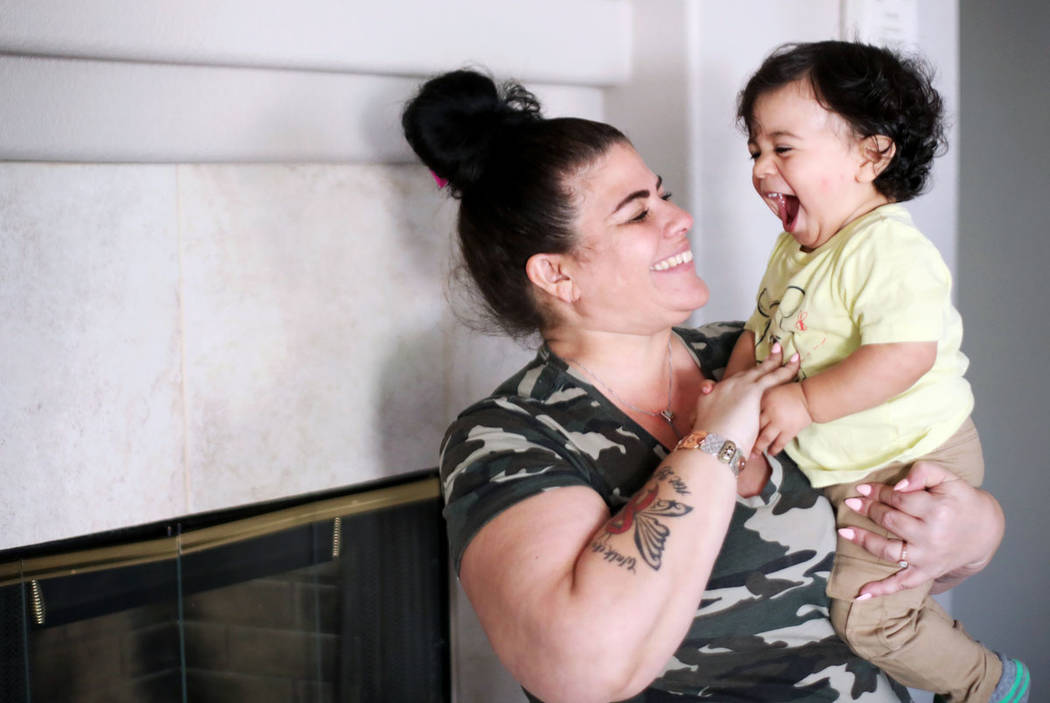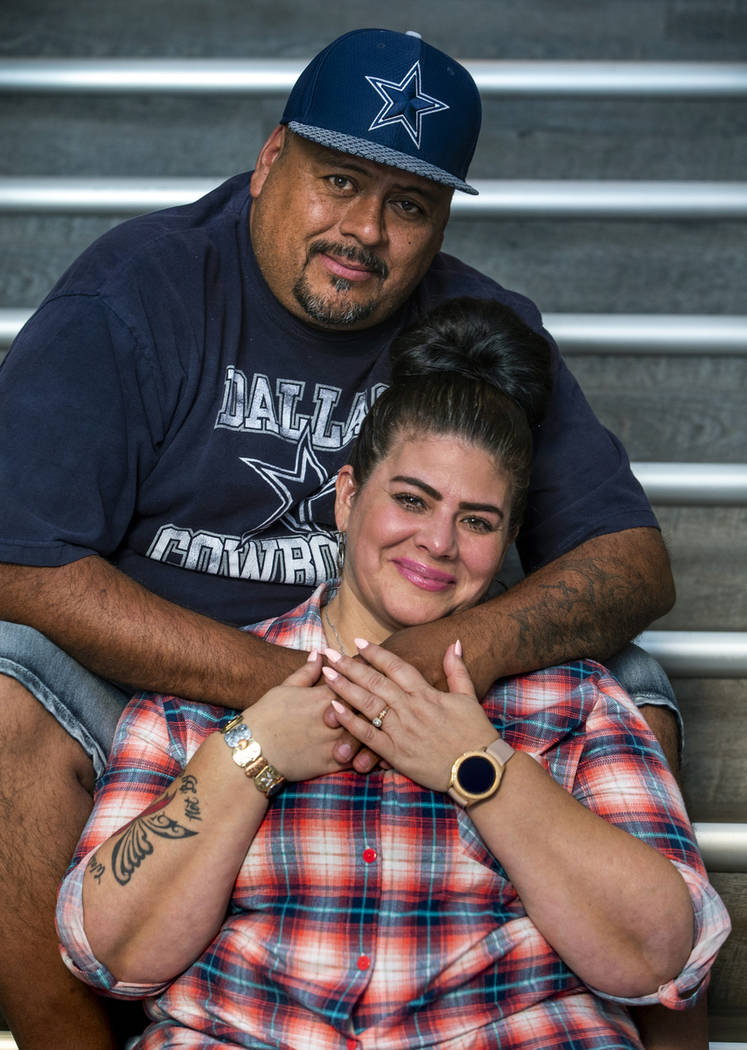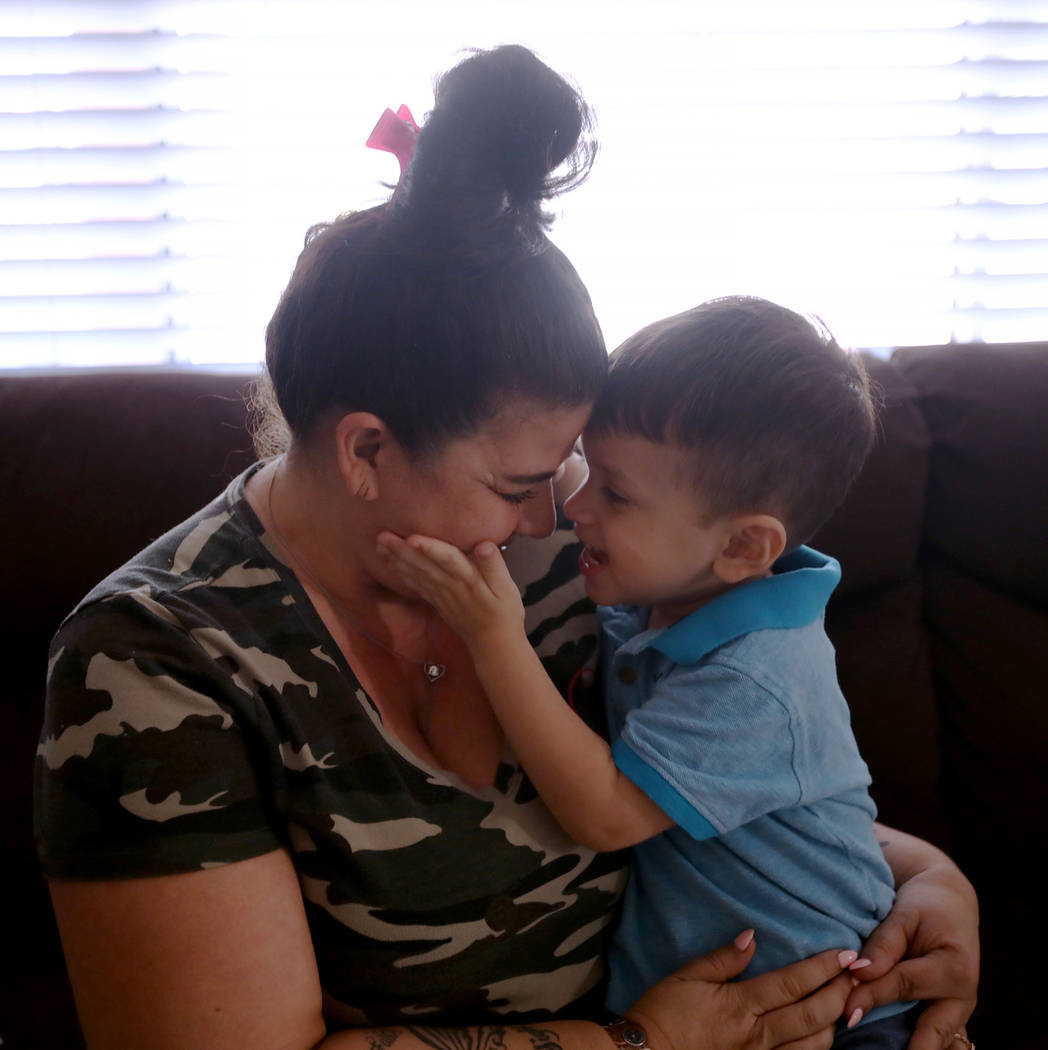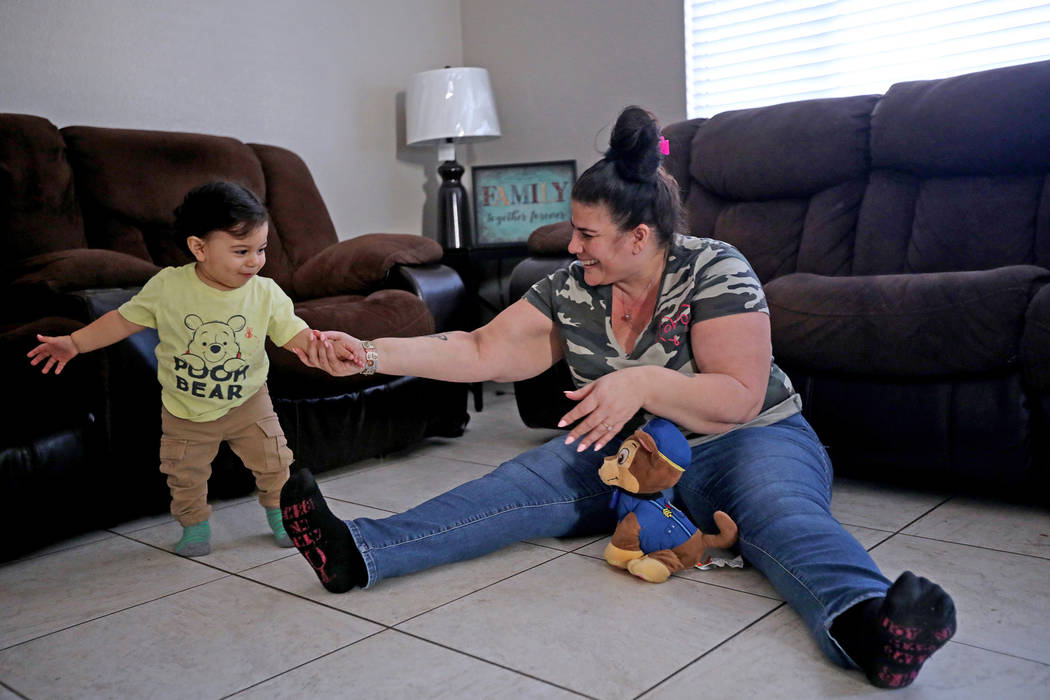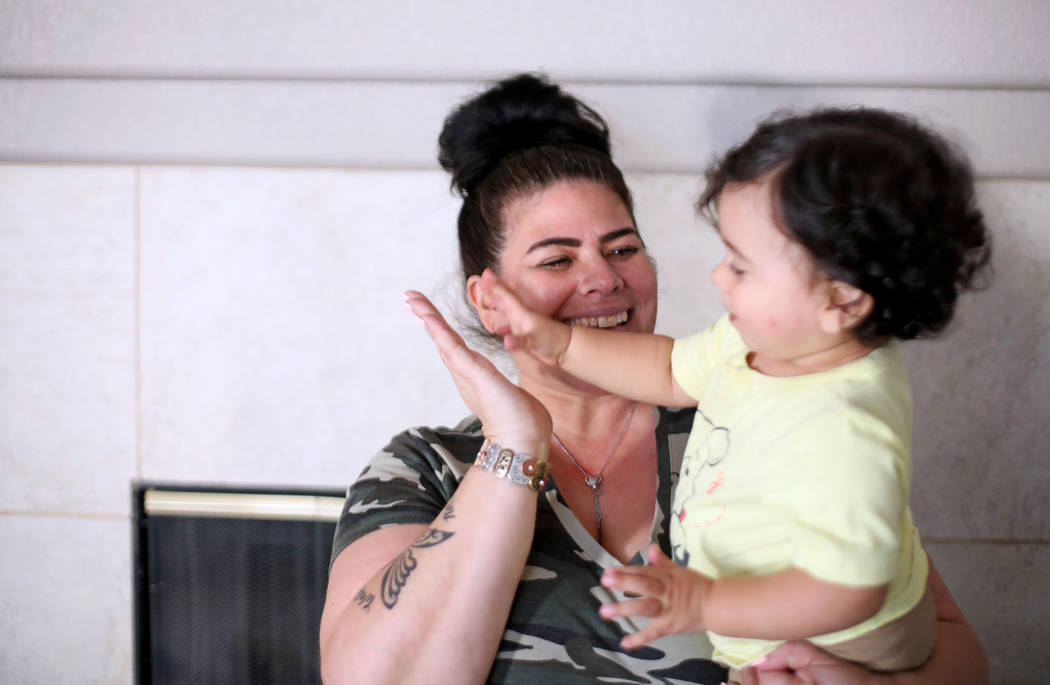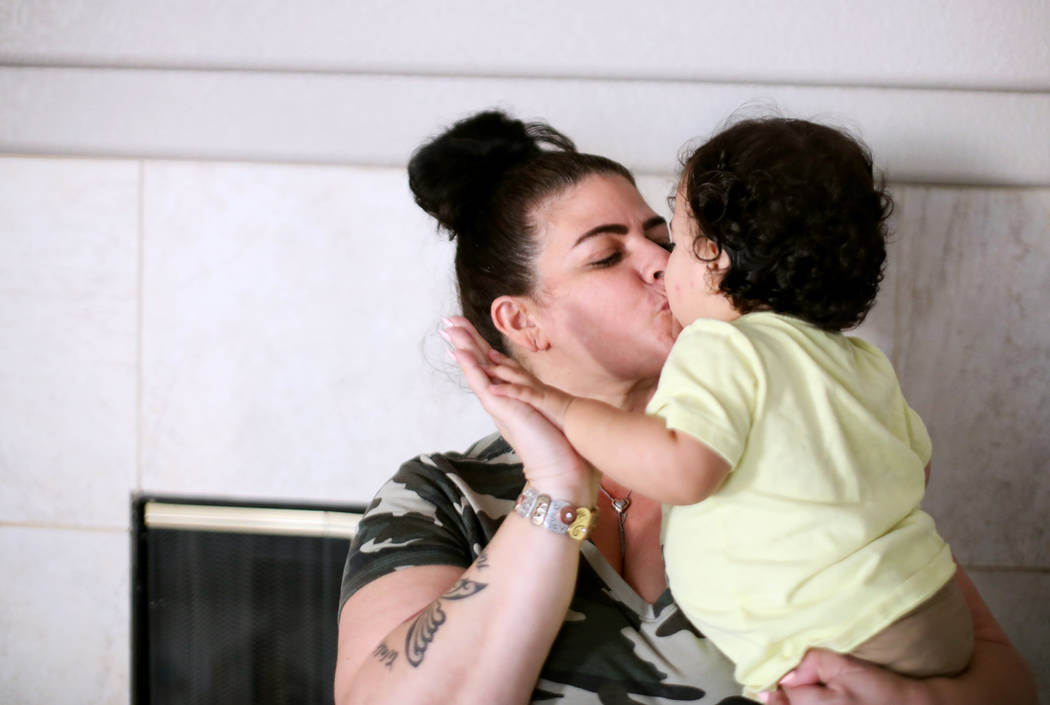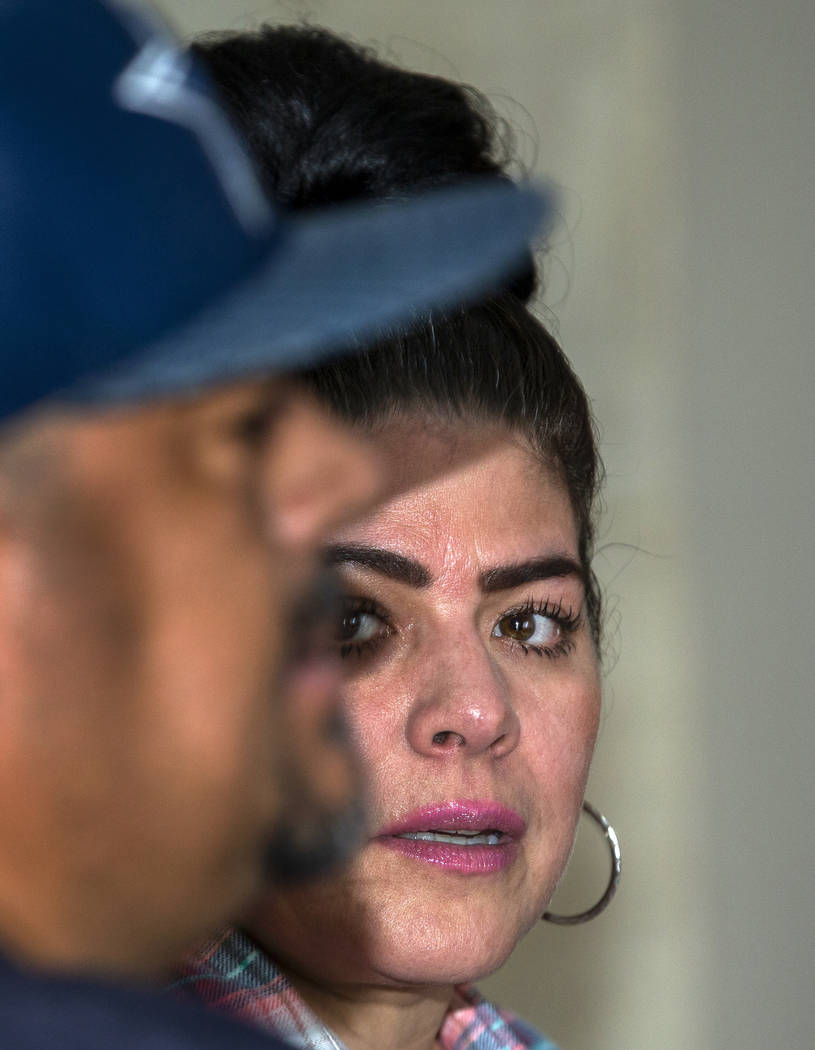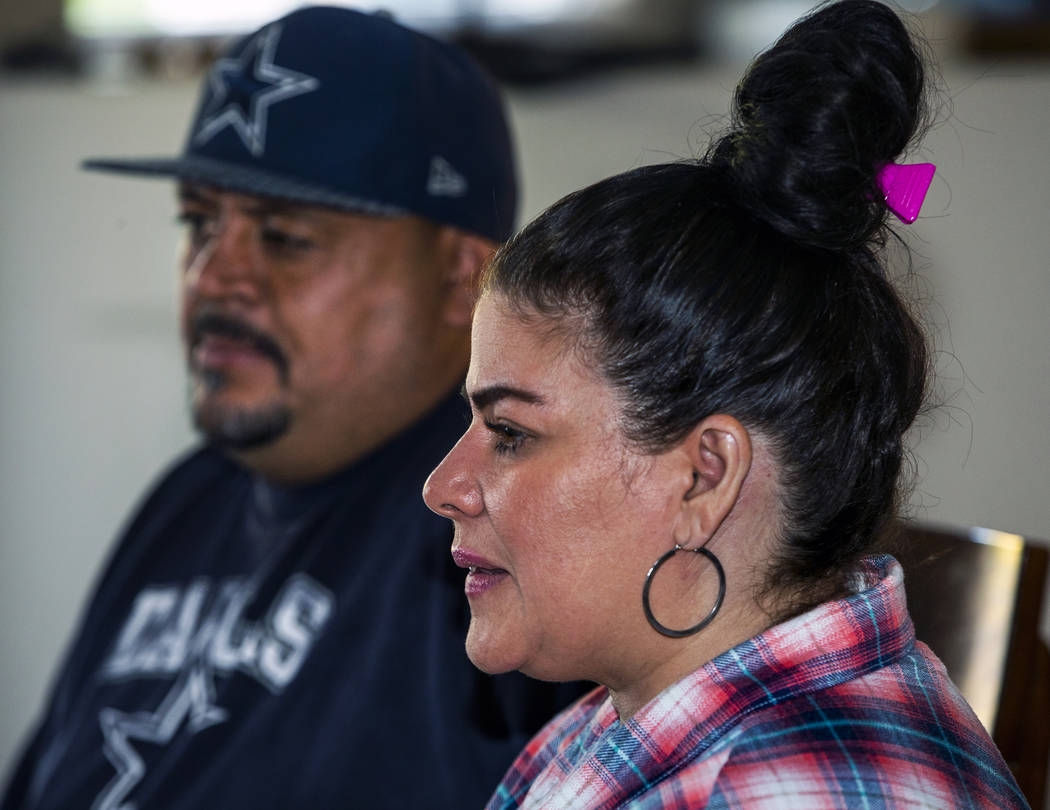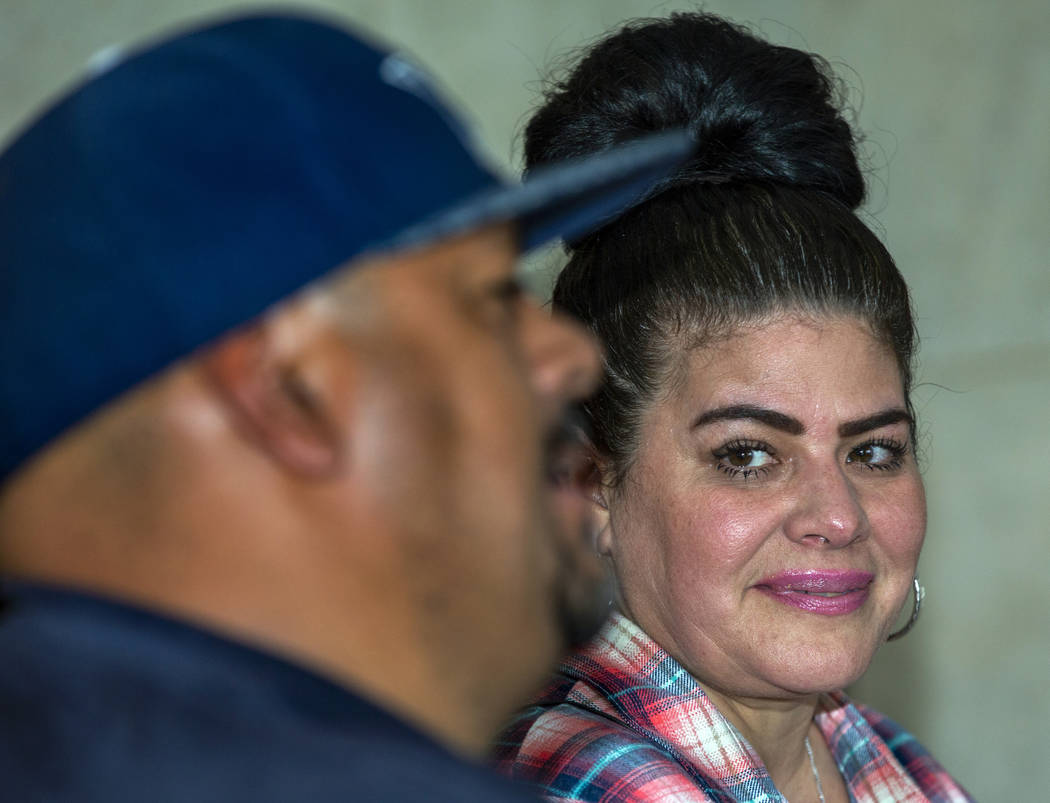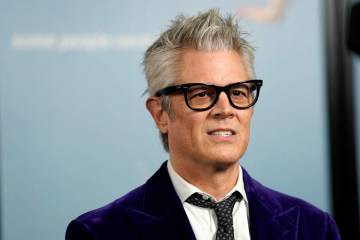Las Vegas woman emerges as national right-to-die advocate
After returning last week from a hectic few days of media interviews and sightseeing in New York City, Hanna Olivas could no longer ignore her crushing fatigue.
When she greeted a reporter at her front door Tuesday afternoon, Olivas, her face drawn, said she’d planned to mop the floor but she hadn’t been able to summon the energy to do much more than sit on her couch for the past few hours.
The 45-year-old Las Vegas resident, who two years ago was diagnosed with multiple myeloma, a rare blood cancer, spent some of her first visit to the Big Apple checking off bucket-list items: going backstage at “The Lion King” on Broadway, eating a cheeseburger at P.J. Clarke’s in Manhattan, looking at vintage Barbie dolls at the iconic FAO Schwarz toy store.
But most of her hours were spent in interviews with the news media.
The interviews with the Hispanic media outlets were the hardest, said Olivas, referring to the directness of her interviewers. “They’d say, ‘So when are you going to die?’”
It’s a natural question, if harsh. Olivas in recent months has become a vocal advocate for laws to allow patients with terminal illnesses and only months to live to medically end their lives. Once the People magazine featuring Olivas hit the newsstands on Oct. 11, she became a sought-after guest on nationally syndicated TV talk shows, one of which flew her to New York City.
‘Go live your life’
Although it’s her right-to-die advocacy that has put her in the spotlight, she makes it clear she’d rather think about, and talk about, living than dying.
She’s taken to heart guidance given by one of her doctors: “Go live your life. And live it hard.” And that’s what she intends to do until she no longer can.
Her face lit up and the earlier signs of fatigue vanished when she recalled sight-seeing with her husband, Jerry, in New York, spending time with her four grown children and two grandkids, and her volunteer work with Hope for Prisoners and cancer organizations.
She also continues to work part time in her longtime occupation as a make-up artist. “If I just rest, if I were to stop what I was doing, I’d feel everything times 10,” she said of her pain and exhaustion. “I’d wither away faster.”
But when death is near, and she’s no longer able to do these things she loves, she plans to relocate with Jerry to California, where under state law doctors are authorized to provide death-inducing drugs to terminally ill adults with less than six months to live. She would first have to establish residency, be evaluated by two doctors and be found mentally capable of making her own medical decisions.
“I know that myeloma comes with a painful, long, slow death,” Olivas said. “And I know you’re not in your right mind at the end. I don’t want my kids and my husband to see me that way. I can’t leave the Earth that way. If that means I have to pack my stuff and go to California when the time comes, that’s what I’m going to do.”
She envisions dying peacefully and quickly, surrounded by her four grown children and Jerry.
Jerry and Hanna dated in high school, reconnected decades later and have been married for 6½ years. “She’s everything to me,” he said. “I’ve loved her since we were kids, and I need her here to keep me complete. That’s me being selfish, but I need her here.”
He said he doesn’t “100 percent agree with her decision in the medical aid in dying.”
“Me myself, I wouldn’t choose that path,” he said, but believes his wife has the right to make the choice and supports her in it.
Olivas said she already has endured a lot. Feeling like her bones are “on fire.” Headaches so bad she can’t get out of bed. Rashes. Nausea. And more recently, fractured ribs and a cancerous lump in her leg.
Given five years to live
For months her symptoms baffled doctors, but in August 2017 she received the multiple myeloma diagnosis and a prognosis of five years to live if she underwent chemotherapy. But after five rounds of treatments, she stopped the therapy when her doctors said it was damaging her kidneys and liver.
Olivas said she got more answers about her illness when she saw a specialist at Mayo Clinic in Phoenix. However, the clinic was out of her insurance network, and she now sees a doctor at Ronald Reagan UCLA Medical Center in Los Angeles as well as one in Las Vegas.
Olivas’ doctors declined to speak with news media, said a representative of Compassion &Choices, an advocacy group for medically assisted dying that is assisting Olivas with media inquiries. Olivas said her doctors do not support medical aid in dying.
She is currently evaluating whether to begin chemotherapy again, noting that her doctors have indicated it would be risky for her.
”The chemo just extends your life, but for how long?” she asks. “What quality of life do you have it you’re always hooked up to a port or in a chair getting treatment?
“I’d rather live my life, when I can still walk around and do the things I want to do, than sit in a doctor’s office,” she said. “If they could give me a more hopeful diagnosis, then I may consider it harder.” Her doctors now estimate that she may have a year to live without treatment.
“To me, doctors are not God,” she said. “And they don’t know everything. They’re giving their best guess.”
To those who say that medically assisted dying is wrong, she says, “They’re entitled to their opinion. But until you walk in my shoes, that’s all it is to me.” She’s a Christian and tries “to be as good a person as I can be. But this is my personal decision. I just hope they can respect that.
“I’m not giving up. I want to live. I don’t want to die. I just want to die on my own terms when that day comes.”
Contact Mary Hynes at mhynes@reviewjournal.com or 702-383-0336. Follow @MaryHynes1 on Twitter.
Nevada right-to-die measure stalled
Hanna Olivas traveled to Carson City in April to urge Nevada legislators and Gov. Steve Sisolak to enact legislation authorizing medically assisted death. The measure did not advance in the session in the face of concerns that it could be abused and lead to coercion.
"That option needs to be available in every state," she said, adding she thinks it's unfair that legislators can "tell me how I can die or not die."
Medical aid in dying is currently authorized in Washington, D.C., and nine states: California, Colorado, Hawaii, Maine, Montana, New Jersey, Oregon, Vermont and Washington, according to Compassion & Choices, the right to die advocacy group.
The Nevada Legislature next convenes in two years. "If I'm still here in 2021, you better believe you'll see me up in Carson City," Olivas vowed.



